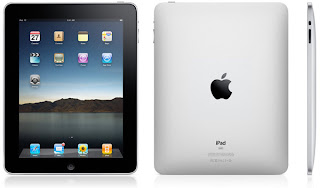
Lots of people have been asking me why I need an iPad (I plan on getting one really soon).
Here are the answers that I've been giving them (and myself) on why I need an iPad, before owning one:
- It turns on really fast (much faster than a laptop). This is great for taking notes, looking something up, checking my calendar...
- Relatively lightweight to carry around. I know a netbook may be lighter but carrying around an iPad is lighter than my laptop
- It can do most of the essential things I need to do on my laptop, especially when on the go: email, web, docs (mainly Google docs), twitter, watching videos, Skype
- It has a great interface for playing games
- The non-committal data plan. Whenever I'm in the States I can just purchase a $15 dataplan for that specific month, directly from the device. Very convenient.
- It's cool, innovative, and really sleek (I gotta be a part of the revolution), which brings me to my final reason:
- Cuz I'm a geek, duh :)
Here are the things I think I will be missing by carrying around only an iPad:
- No way to sync my iPhone (for backing up and transferring media)
- No Bittorrent client
- No way to convert videos for viewing on the iPad













